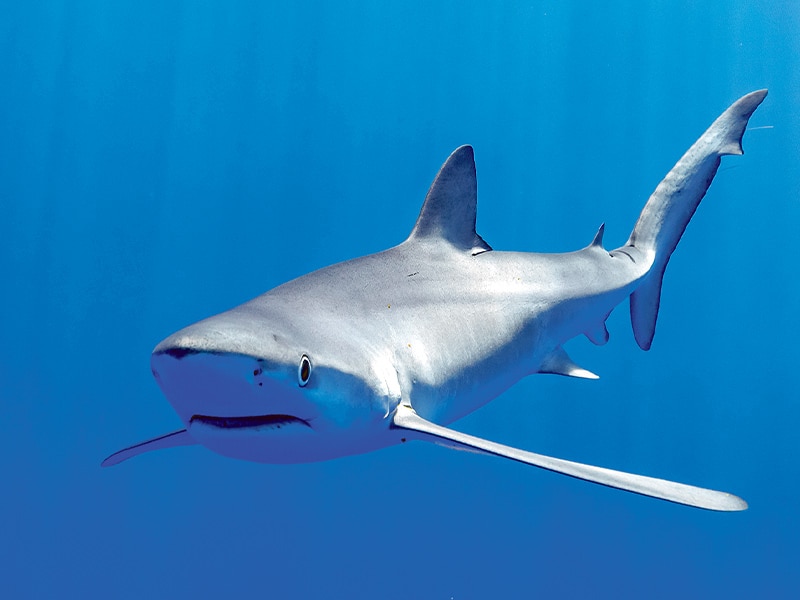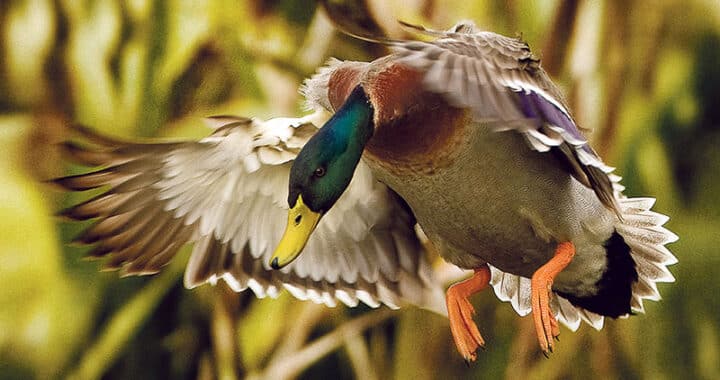Draft action plan to protect sharks released
3 min read
In 2021, fishers reported killing and dumping more than 102 tonnes of blue sharks, Forest & Bird says. Photo: Diego Delso | CC BY-SA 4.0
A draft National Plan of Action Sharks 2022 produced by Fisheries New Zealand and the Department of Conservation (DOC) sets out goals and objectives that aim to effectively conserve and manage sharks in the waters of Aotearoa.
The document, which is seeking public feedback, includes information about New Zealand shark populations, how sharks interact with fisheries, the cultural significance of sharks, and how mātauranga Māori will help inform management.
With New Zealand’s Exclusive Economic Zone (EEZ) home to at least 113 species of shark – of which more than 70 have been recorded in fisheries – sharks play an important role in maintaining healthy ocean ecosystems, said Emma Taylor, Fisheries New Zealand’s director fisheries management.
“We’ve made good progress towards protecting sharks through introducing a ban on shark finning practices in New Zealand waters in 2014 and by careful management within the Quota Management System. The draft plan aims to strengthen protection for sharks by ensuring best practice is followed to return any unwanted sharks to the sea alive with the best possible chances of survival.”
Sharks can take a long time to mature and only produce a small number of young with low rates of survival, said DOC aquatic director Kirstie Knowles.
“It’s important that we do everything we can to maximise the survival of any unwanted and protected sharks that are caught in our waters.”
The draft plan is the third iteration and builds on the previous NPOA-Sharks 2013 and was developed by a Shark Advisory Group representing government agencies, tangata whenua, environmental groups, and commercial and recreational fishers.
“Many of the goals and objectives from the previous NPOA remain relevant, and these have been included in the draft NPOA-Sharks 2022. On top of that we’ve included several new goals and objectives, which reflect new information and priorities,” said Knowles.
The draft NPOA-Sharks 2022 includes goals such as, ensuring biodiversity and maintaining shark populations over time encourage increased utilisation of sharks subject to the quota management system
avoiding protected and unwanted shark captures and maximising post-release survival managing non-fishing threats to sharks and their habitats better integration of tangata whenua perspectives and values in shark management maintain and develop international engagement for shark management, and
improve research, data and information about sharks and their habitats.
Draft plan needs teeth to save 1000+ sharks : Forest & Bird
While Forest & Bird welcomed the release of the draft plan, which discourages the wasteful and cruel killing of sharks, the group is calling on the Government to ban the practice outright.
“In 2021, fishers reported killing and dumping over 102 tonnes of blue sharks, over 26 tonnes of mako sharks, and over 33 tonnes of porbeagle sharks – a practice that is legal using an exemption under the Fisheries Act. This equates to over 1300 fully sized adult pelagic sharks and substantially more if the fishers were discarding juveniles. These disturbing numbers were revealed by an Official Information Act request by Forest & Bird for data from the Ministry of Primary Industries,” Forest & Bird spokesperson Geoff Keey said.
“This plan must provide stronger protection for the diversity of sharks that call New Zealand waters home, including putting an end to the deliberate killing and discarding of sharks that aren’t fished for food.”
The conservation group said it is also seeking to put the Government’s strategy to protect nature, Te Mana o te Taiao, at the heart of the National Plan of Action for sharks, including the agreed transition to zero bycatch and ecosystem-based fisheries management, and protection for key shark habitats from the impacts of coastal pollution, seabed mining, and damaging fishing practices.
“The Government also needs to learn the lessons from the review of the previous 2013 National Plan of Action on Sharks,” said Keey.
“Many of the objectives weren’t achieved because agencies lacked the people, the information, or the resources to get the job done. This time around, ministers will need to commit to providing MPI, DOC, and research agencies with the resources needed to better protect and manage sharks.”
The draft plan can be viewed at mpi.govt.nz. Submissions close at 5pm on 13 September 2022.



